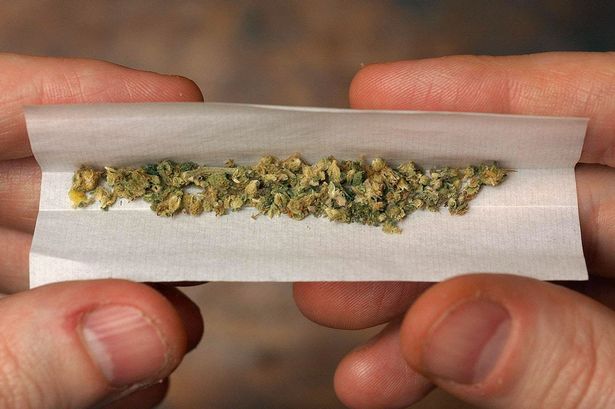New figures show nine-fold increase in number of people being treated

The number of people being treated in the district has risen more than nine-fold in five years.
Figures released by Public Health England after a Freedom of Information request show 179 adults in the area had at least one episode of treatment for cannabis misuse in 2013/14.
This is more than nine times higher than the 19 treated in 2008/09, and the highest level in nine years, up from 122 in 2012/13.
Chris Lawton, service manager at drug and alcohol counselling service Lifeline Kirklees, said the figures weren’t evidence that cannabis use was becoming more of a problem but that there was greater awareness of the treatment programmes available.
He said cannabis often went under the radar because it was seen as “socially acceptable” in the same way as alcohol.
“When people are affected by cannabis – or alcohol – they don’t always accept they have a problem,” he said.

“Yes, it’s an illegal drug but people think cannabis is not going to hurt, it’s not going to be a problem.”
Mr Lawton said that in recent years perceptions had changed and users had been seeking help.
“It’s not necessarily a physical dependency with cannabis, it’s more psychological. It starts as a joint on a night for fun, to help someone relax or to sleep.
“But then they start having one when they get home whereas before it was just before going to bed, then they start popping out of work, and what started out as once a night becomes two or three times a night.
“You wake up in the morning with cannabis head – still feeling out of sorts – and that starts to affect your day-to-day life.”
Mr Lawton said cannabis affected people in different ways and could cause mental health issues from feeling down more often to paranoia.
Cannabis is often described as a “gateway drug”, a starting point towards an addiction to hard drugs such as heroin and crack cocaine.
Mr Lawton said he believed that was a stereotyped view and there was no reason to think users progressed to other drugs.
“Users can range from 14-year-olds to 90-year-olds,” he said. “It can be a recreational drug taken because your mates are taking it or it can be pain relief for older people or those with an illness or condition.
“Cannabis is quite addictive and it is easy to move from one joint to 10. It’s an easily accessible drug and relatively cheap. You will get a bag of cannabis for a fiver.”
Mr Lawton urged people who believed they had a problem to get help. He said there was no physical withdrawal symptoms with cannabis and in around six to eight weeks people could change their habits or even change their lives.
Across England, almost 200,000 adults were treated for substance misuse in 2013/14. The number being treated has been falling slowly over the past few years, from 210,815 in 2008/09 to 193,198 in 2013/14.

No comments:
Post a Comment